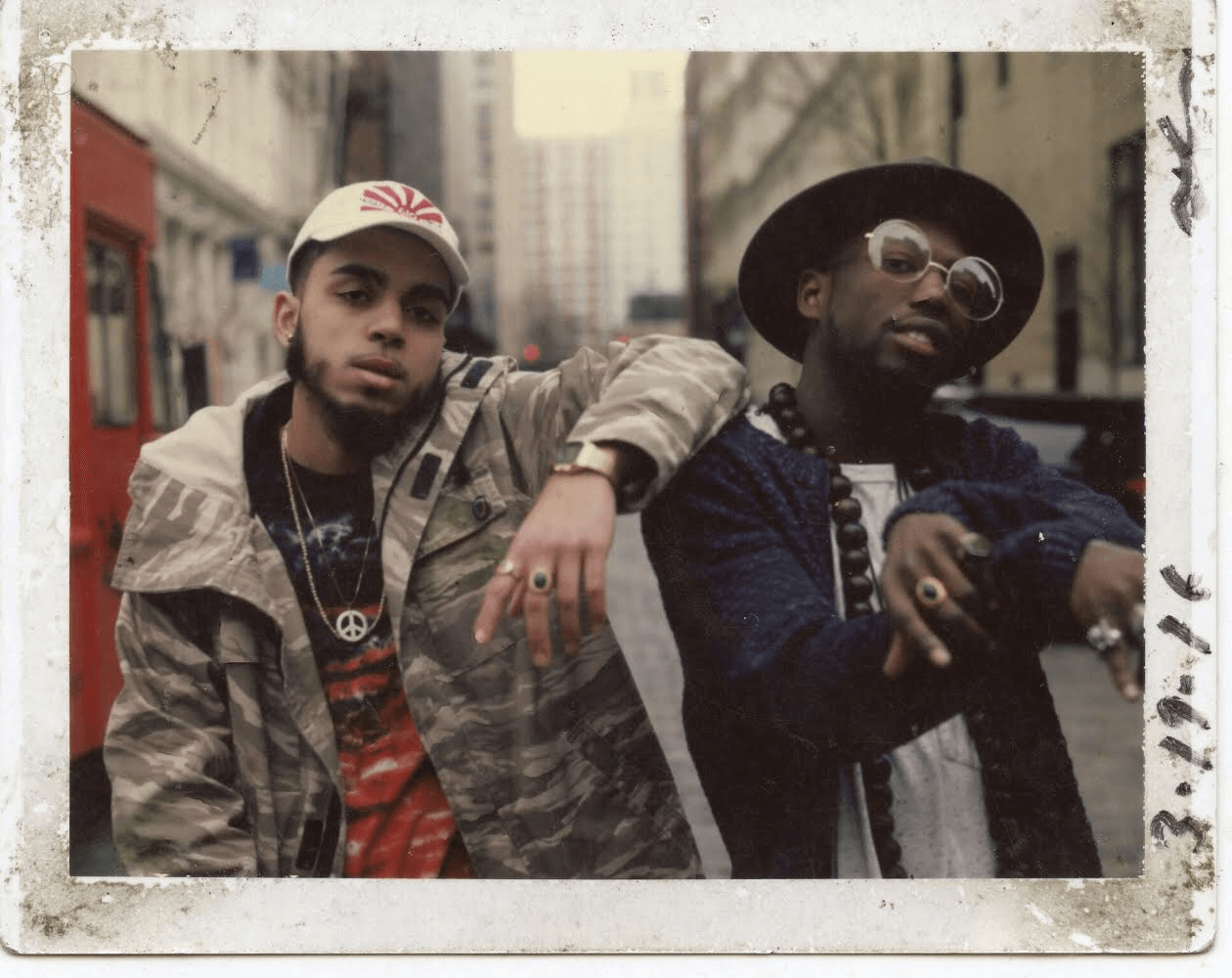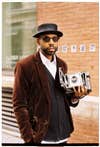Oh, snap! Meet the Polaroid street photographer using an old-school Speed Graphic
Jean Andre Antoine has become a fixture in NYC's lower Manhattan landscape, snapping one-of-a-kind portraits of celebrities and tourists alike.

“I haven’t shot digital photography in over a decade probably,” Jean Andre Antoine admits. The Harlem native is taking our phone call from the “office,” which for this street photographer means Prince Street between Broadway and Crosby in New York City’s lower Manhattan. Antoine posts himself up in the window of a former Dean & DeLuca coffee shop, waiting for a curious passerby to approach. A siren eventually wails in the background, painting a frenetic juxtaposition between the chaos of the city and the man who shoots instant film that takes five to ten minutes to develop. But for Antoine, analog street photography is a refreshing breeze in an increasingly superficial, retouched world.
“[A friend remarked] that photography’s at a place where people don’t want the truth anymore in a sense of reality, as they see it,” Antoine shares. “Now [the image] has to be touched up. It has to be fixed, this or that, they want it to be beautified. I’m really at a place where I want to remove that from the photograph, in the sense, and let people know that’s not the only photography that exists.”
Related: Best instant Cameras

Why analog in the city that never sleeps
The bustle of New York City hardly lends itself to anything slow and old-fashioned. Plus the mirrorless camera revolution and possible death of the DSLR make it impossible to deny that we like things faster and fancier. But Antoine’s photographic practice is making the case that it’s not always better.
“Instant photography to me is the purest form of photography in the sense of you get what you see, it’s delivered there on a spot tangibly,” he asserts. “Secondly, it reminds me of the process of shooting, developing, and printing because when I learned photography, it was those three steps that you had to go through to get the whole image. I always thought about having my tangible prints, and now that I’m able to shoot, develop, and print on the spot. To me it’s great.”

In addition to harking back to his early days with the medium, shooting film also protests against the culture of heavily retouched images and offers a fresh dose of the real and raw.
“It brings photography back to real life,” Antoine says. “I’ve always seen photography through that documentarian type of viewpoint where I just want real life. I’ve never really taken to the beauty aspect or the commercial aspect of it.”
Related: Polaroid Go review: instant fun & convenience
An introvert in an extrovert’s office
From Thursday to Sunday starting around 11 a.m. to about 5:30 or 6:00, passersby will find Antoine posted up in his office, weather permitting, with a bevy of cameras to suit every situation. The self-acknowledged introvert’s biggest (literally) attention-grabber is a 4×5 Speed Graphic, but a Polaroid 195 Land Camera is one of the many others that have made appearances.
“The reason why I even shoot with the Graphic is because when I’m out working, it draws the attention of people coming in. So it’s that kind of camera, but it’s also a really great camera. It has dual duties, in that sense.”

Though Antoine says that street photography has made him less of an introvert, this aspect of his personality still informs his approach to the art a decade later.
“When I first started, I would be as low-key and inconspicuous as possible shooting,” he remembers. “But now, the type of work that I do in street photography is street portraiture. So I have to interact with people.”
So what exactly draws him to these types of portraits?
“I guess the impromptu-ness of it and then having to deliver on that kind of note,” Antoine reflects. “I feel like that represents life in general because I have this one take with a stranger. That’s always kind of a feat.”

NYC is a box of chocolates: you never know who you’ll meet
Antoine’s approach to street photography is special in that he doesn’t reach out to potential subjects. Instead, he waits for them to come to him, and finds that the right people will.
“I don’t have to sell anything. For me, that’s the biggest point,” he says.
When I ask if he’s ever photographed anyone famous, the answer is yes without elaboration. Further coaxing reveals names like Patty Smith, Spike Lee, and ASAP Rocky. For Antoine, however, the real intrigue is not the celebrity portrait, but building a connection between himself and the subject—there are those who have visited repeatedly for new photos, sometimes with friends and family in tow.

“Over the years the moments mean more than anything to me now,” he notes. “When people bring me their family members, it means a lot more to me than just a great photograph. I know this photograph is going to have some kind of life past me and that’s what I look for. I want a sense of timelessness.”
Antoine adamantly observes that he never knows where a portrait will take him. But, in one instance, that “where” was nearly two weeks in Paris and Italy on behalf of jeweler Tiffany & Co. after he had done the portrait of an employee. After seeing Antoine over the years, he came to mind when the company wanted to execute a Polaroid project. Though it was a phenomenal experience, he maintains that commercial work is not a goal he aspires to.
“I’m not a huge fan of it. I’m in and out,” he explains. “The beauty of what I’m doing has been the freedom of being able to create freely. I have no one over me. I’m able to just come out to the street and deliver and I’m really not in a rush to work for anyone in a sense. I’ll take them as they come. The gigs have to fit what I’m doing and have to make sense.”

Get a portrait while you can
As the saying goes, all good things come to an end—but for Antoine, this isn’t by choice. The film he uses, peel-apart Fujifilm FP 100 C, has been discontinued for nearly six years. As it becomes scarcer, the prices are more precious. He paid $130 per pack on a recent haul, recalling the days it was $5 or $10.
Once the stash is gone, that’s it, so get your instant portrait taken while you can. When that day ultimately comes, Antoine will be pivoting to portraiture in his studio on Canal Street. Before he does, however, he’ll spend time showcasing his archives. Curious visitors are welcome to book appointments for viewing. One thing is certain, though. When he does close up shop, Prince Street will lose a beloved community figure.
“I’ve made so many friends and relationships through this,” Antoine shares. “That’s another beauty of doing this…[to]have repeat customers…just that recurrence of that relationship over the years [has] become huge to me.”
